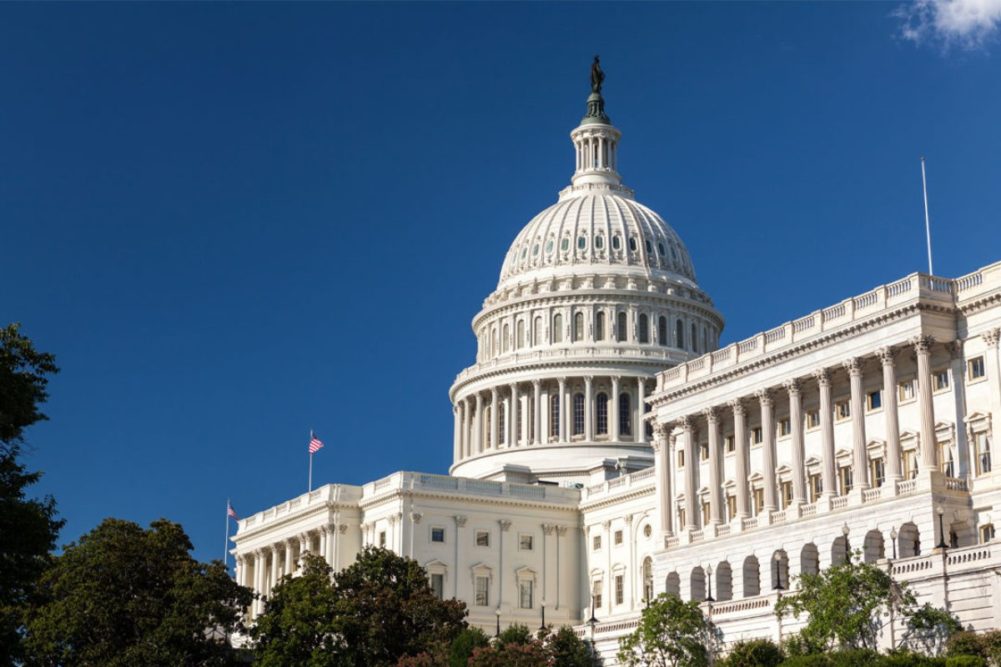Dec. 20, 2024 - Article updated to reflect information regarding the 2024 potential government shutdown.
WASHINGTON – With one federal spending bill rejected and a revised version still uncertain, the US faces the possibility of a government shutdown starting at 12:01 a.m. on Saturday, Dec. 21, when current funding expires. This raises concerns about how various services and payments might be affected just days before the holidays.
The impending shutdown stems from a dispute over a spending bill intended to extend funding through March 14. House Speaker Mike Johnson withdrew the bill after objections from some Republicans, including President-elect Donald Trump, over the addition of billions of dollars in spending.
During shutdowns, many federal employees are told not to report for work (though under a 2019 law, they get paid retroactively when the shutdown ends). Government employees who are deemed essential, such as air traffic control and law enforcement, continue to work but don’t get paid until Congress reaches a deal to end the shutdown.
So what does all this mean for the dairy industry?
Some food inspections by the Food and Drug Administration (FDA), workplace safety inspections by the Occupational Safety and Health Administration (OSHA), and environmental safety inspections by the Environmental Protection Agency (EPA) could be delayed, as they have been when the government stopped functioning in the past.
“We encourage Congress and the administration to redouble their efforts to find common ground on a federal budget that maintains our government’s programs and services, especially those that ensure food is safe and accessible to all Americans,” said Matt Herrick, senior vice president, public affairs and communications, International Dairy Foods Association (IDFA), Washington, DC.
According to the US Department of Agriculture (USDA), the shutdown would require furloughing half of USDA's 100,000 workers and will prevent field offices from doing much beyond emergency assistance. USDA’s Food Safety and Inspection Service (FSIS) will continue its continuous inspections of fresh meat and poultry, while the FDA and the Centers for Disease Control and Prevention are going through exercises to determine which employees are considered essential.
There have been four previous government shutdowns during which operations were affected for more than one business day. In 1995-1996, the government shut down twice for a total of 26 days. In 2013 a standoff over the Affordable Care Act resulted in a 16-day shutdown. In December 2018 and January 2019, there was a shutdown that lasted 35 days (it was a partial shutdown because Congress had previously passed five of the 12 appropriation bills.)
According to IDFA, these are the likely direct impacts for the dairy industry:
FDA
Imports: Sampling and foreign supplier verification inspections: Only high priority/for cause will continue. Export certificates will still be issued and import entries will still be processed.
Domestic inspections and sampling: Domestic and foreign facilities or farms with outstanding compliance issues and higher risk food facilities will be inspected. Routine inspections will stop. Foodborne outbreak investigations will continue with sampling as needed. Surveillance sampling will stop.
The Alliance for a Stronger FDA has released an FDA shutdown tool kit, which can be found here. Founded in 2007, the alliance unites a coalition of 150 consumer and patient groups, biomedical research advocates, health professional societies, trade groups and companies to advocate for increased budget authority appropriations to support FDA, and educate policymakers, the media and the public on the FDA’s mission and responsibilities.
OSHA
Traditionally, OSHA operates with a skeleton staff at federal and state offices, ensuring they have enough technical staff to address situations that involve potentially hazardous conditions presenting a high risk of death or serious bodily injury. Planned and unplanned inspections are not expected unless they meet the standards noted above. No compliance assistance will be given. About 26 states have their own OSHA programs and those will continue uninterrupted. All companies must continue to report injuries and fatalities as required by law.
Customs and Border Protection (CBP)
The vast majority of CBP inspectors will continue work and there should not be a major impact to import inspections.
Office of the US Trade Representative
All normal and bilateral work will stop. Continuing and excepted work includes multilateral or plurilateral meetings that would proceed if the US was not present (i.e., WTO meetings, IPEF negotiations, etc.).
Environmental Protection Agency (EPA)
All environmental safety inspections will cease; all emergency and disaster assistance by the EPA will continue.
USDA
Supplemental Nutrition Assistance Program (SNAP): Congress has provided SNAP a $3 billion “contingency fund” through previous appropriations that would last into the next fiscal year. In other words, SNAP has a $3 billion “cushion” to pay benefits, etc., which should last 1-2 months if the shutdown were to continue that long. School meal funds/reimbursements are generally provided quarterly so those funds should remain available for at least one month, possibly up to three months.
Women, Infants and Children program (WIC): According to USDA, the WIC program would come to a halt for 6-7 million mothers and children, although a contingency fund could keep the program running for a day or two during a shutdown. A handful of states may have unspent WIC benefits they can distribute if a shutdown persists.
Animal and Plant Health Inspection Service: Import inspections and export certificate issuance will continue. Policy work, disease monitoring, etc. would cease.
Agricultural Marketing Service (AMS): The majority of AMS activities that affect day-to-day operations will continue, including grading activities in plants, certificate issuance, contract procurement work for federal procurements, etc. The FMMO hearing and marketing orders and agreements will stop.
Foreign Agricultural Service: Only those involved in multilateral negotiations (see USTR) or senior leadership continue working. All other staff will stop working and will not be available for inquiries, market intel reporting, etc. Foreign service officers posted at embassies continue working on limited issues.

